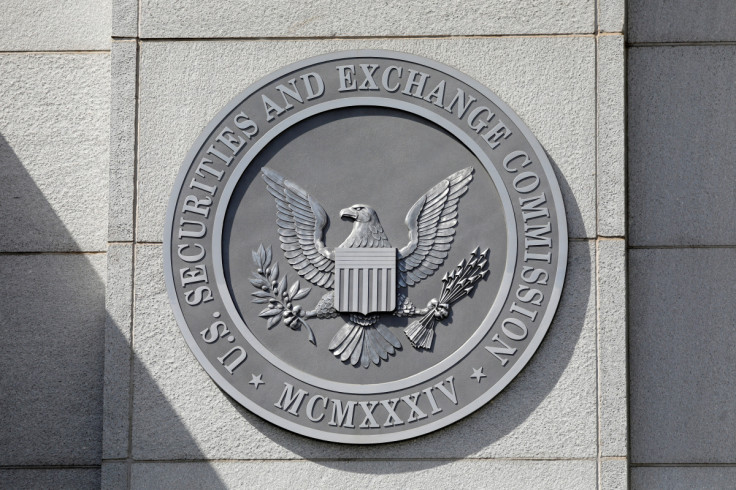You Can Sense the SEC Warming to Crypto as Tokenization Hits the Agenda for December
Paul Atkins argues tokens can outgrow regulation as Coinbase, BlackRock, and Nasdaq executives prepare for December meeting.

The US Securities and Exchange Commission has scheduled a December meeting on tokenising stocks—a move that would have been unthinkable when crypto firms spent more time in court than in conversation with regulators.
Tokenization converts ownership of assets—company shares, bonds, funds—into digital tokens on a blockchain instead of certificates or brokerage database entries. Proponents say this enables faster trades, lower costs, and fractional ownership that lets someone invest $50 in a private company rather than needing millions. The SEC's Investor Advisory Committee meets on 4 December to examine whether securities law can accommodate this without rewriting decades of regulation.
Atkins on When Securities Stop Being Securities
Chairman Paul Atkins took over the SEC earlier this year after the Trump administration replaced Gary Gensler, whose tenure featured more than 100 enforcement actions against crypto firms. Atkins has spent recent months building a different framework, one that treats digital assets as capable of outgrowing regulatory oversight.
He builds his case around a 1941 fraud prosecution. An entrepreneur sold plots in a Florida citrus grove, promising investors that professionals would farm the land and send them profits. Courts ruled the arrangement was a security—an investment contract under federal law.
Those groves? Golf courses now. Housing developments. Nobody walking a fairway thinks they're standing on a regulated security.
Atkins argues that tokens can follow the same path. A cryptocurrency might start as a security when a company sells it to raise capital. Once the network matures and people trade it, build with it, and spend it independently, the investment contract dissolves. The token remains. The security status doesn't.
The Super-Apps Vision
Atkins applies this thinking by sorting digital assets into four categories: network tokens that power blockchains, digital collectibles, utility tokens, and tokenised securities. That last group—stocks or bonds maintained on crypto networks—is what the December meeting addresses.
Under his logic, those tokenised securities might eventually trade outside SEC jurisdiction once they mature, moving to venues regulated by the CFTC or individual states instead. He envisions 'super-apps' where tokens can move across multiple platforms rather than remaining locked within SEC-approved exchanges.
For ordinary investors, that could mean buying fractions of company stock or fund shares with $100 instead of needing accredited investor status or institutional access. Whether December's discussion produces actual pathways or more regulatory delay depends partly on how the committee handles a central tension: enabling innovation whilst maintaining the fraud protections that justified securities regulation in the first place.
Industry Gets Its Say in December
The 4 December panel—'Tokenization of Equities: How Issuance, Trading, and Settlement Would Work with Existing Regulation'—includes executives from major crypto exchanges, asset managers, and trading platforms. The agenda covers:
- Voting rights for tokenised shares
- Whether existing stock market rules apply
- How tokens on different blockchains work together
- Settlement mechanics
The SEC notes there's already been a 'significant increase in the issuance of tokenized securities'—the meeting is catching up to reality.
The timing aligns with broader momentum. Coinbase CEO Brian Armstrong has been in Washington lobbying for the CLARITY bill to get a December markup. The regulatory meeting and legislative push converge deliberately—both working toward the Trump administration's year-end goal for crypto market structure legislation.
Back in DC pushing for market structure legislation. There's been lots of great progress since I was last here which is great to see. Hoping for a mark up of the CLARITY bill in December, and for it to be on @POTUS's desk soon after.
— Brian Armstrong (@brian_armstrong) November 18, 2025
This bill will get crypto further unlocked in… pic.twitter.com/BW7TUJZL80
The meeting won't produce rules on its own, but it puts industry heavyweights on record about how tokenised securities should work.
What December Brings
The 4 December meeting will be webcast on the SEC website, letting markets watch as Scott Bauguess from Coinbase, Samara Cohen from BlackRock, and executives from Citadel and Nasdaq explain how tokenised equities could actually work. Whether Washington writes enabling rules or the industry builds systems that route around regulatory uncertainty may become clearer afterwards. For now, the question is whether regulators can move fast enough to shape this market, or whether they're documenting what firms are already building.
© Copyright IBTimes 2025. All rights reserved.




















